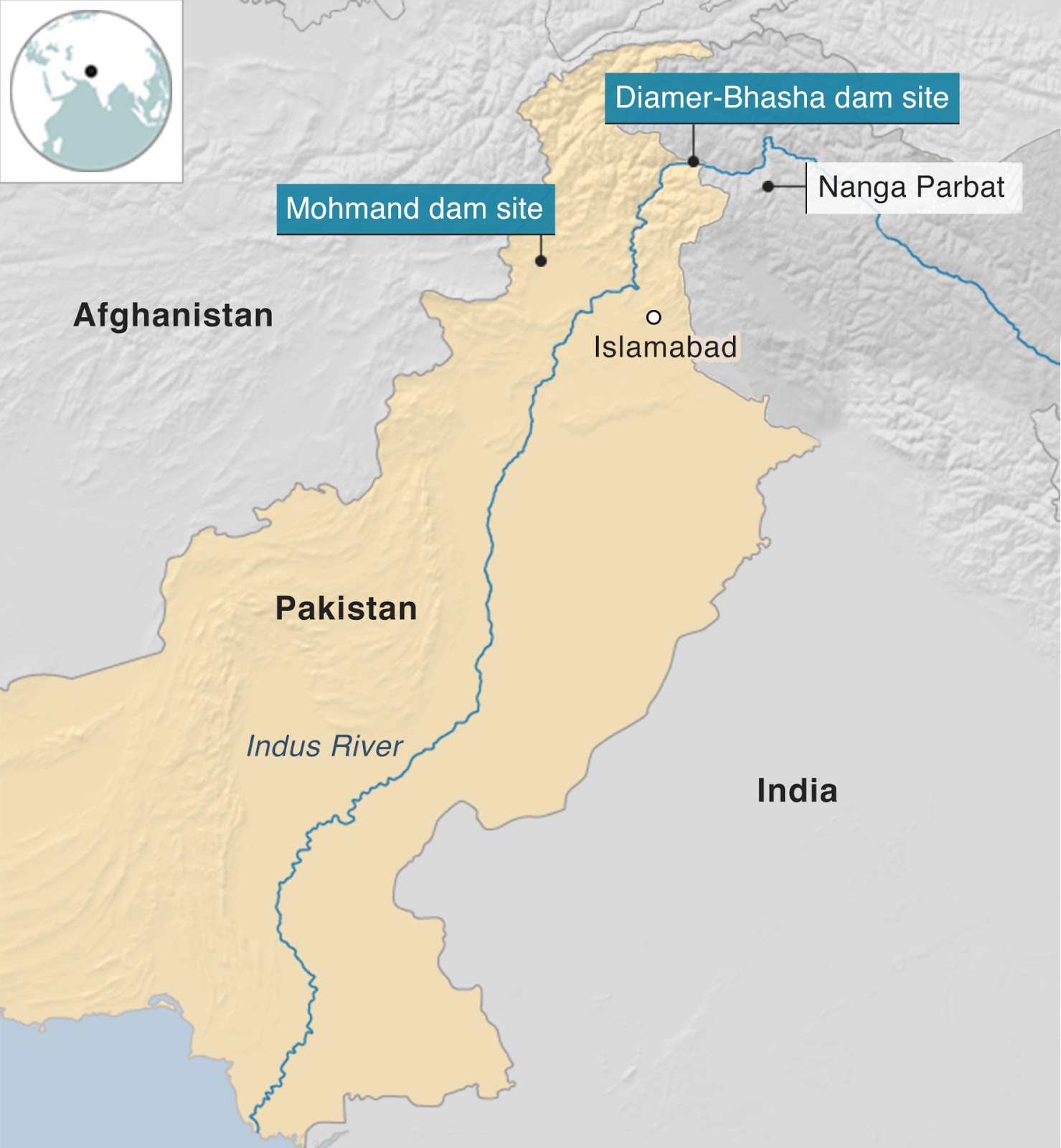Important Facts For Prelims
Diamer-Bhasha Dam
- 15 May 2020
- 3 min read
Why in News
Recently, Pakistan signed a contract with a joint venture of a China Power (Chinese state-run firm) and the Frontier Works Organisation (FWO-a commercial arm of Pakistan’s military) for the construction of the Diamer-Bhasha dam.
- The contract covers construction of a diversion system, main dam, access bridge and the 21MW Tangir hydropower project.
Key Points
- The Diamer-Bhasha Dam is located on the Indus River in northern Pakistan between Kohistan district in Khyber Pakhtunkhwa and Diamer district in Gilgit Baltistan.
- The dam will have a gross storage capacity of 8.1 Million Acre Feet (MAF) and power generation capacity of 4500 MW.
- With the height of 272 meters, it will be the tallest Roller Compact Concrete (RCC) dam in the world.
- The dam project with a total financial outlay of about 1,406.5 billion Pakistani rupees would be completed in 2028.
- Purpose:
- Fulfil the increasing water and electricity requirements of the country.
- Serve as the main storage dam of the country, besides Mangla and Tarbela dams.
- Help alleviate acute irrigation shortage in the Indus basin irrigation system.
- Reduce intensity, quantum and duration of floods and reduce magnitude and frequency of floods in the River Indus downstream.
- Accelerate development and create job opportunities, besides improving availability of water and clean energy.
- The project was approved in 2010, but it suffered delays because international lending agencies backtracked due to the opposition from India as a major part of the dam is located in Gilgit-Baltistan (one of the disputed territories of India) and it will cause unrest in the region.
- India’s Stand:
- India has opposed the move on the grounds that Gilgit-Baltistan region is part of the erstwhile state of Jammu and Kashmir that was illegally occupied by Pakistan.
- India has consistently conveyed her protest and shared concerns with both China and Pakistan on all such projects in the Indian territories under Pakistan’s illegal occupation.
- In the past too, India has opposed projects jointly taken up by Pakistan and China in Pakistan-occupied Kashmir (POK) as part of the China-Pakistan Economic Corridor.





